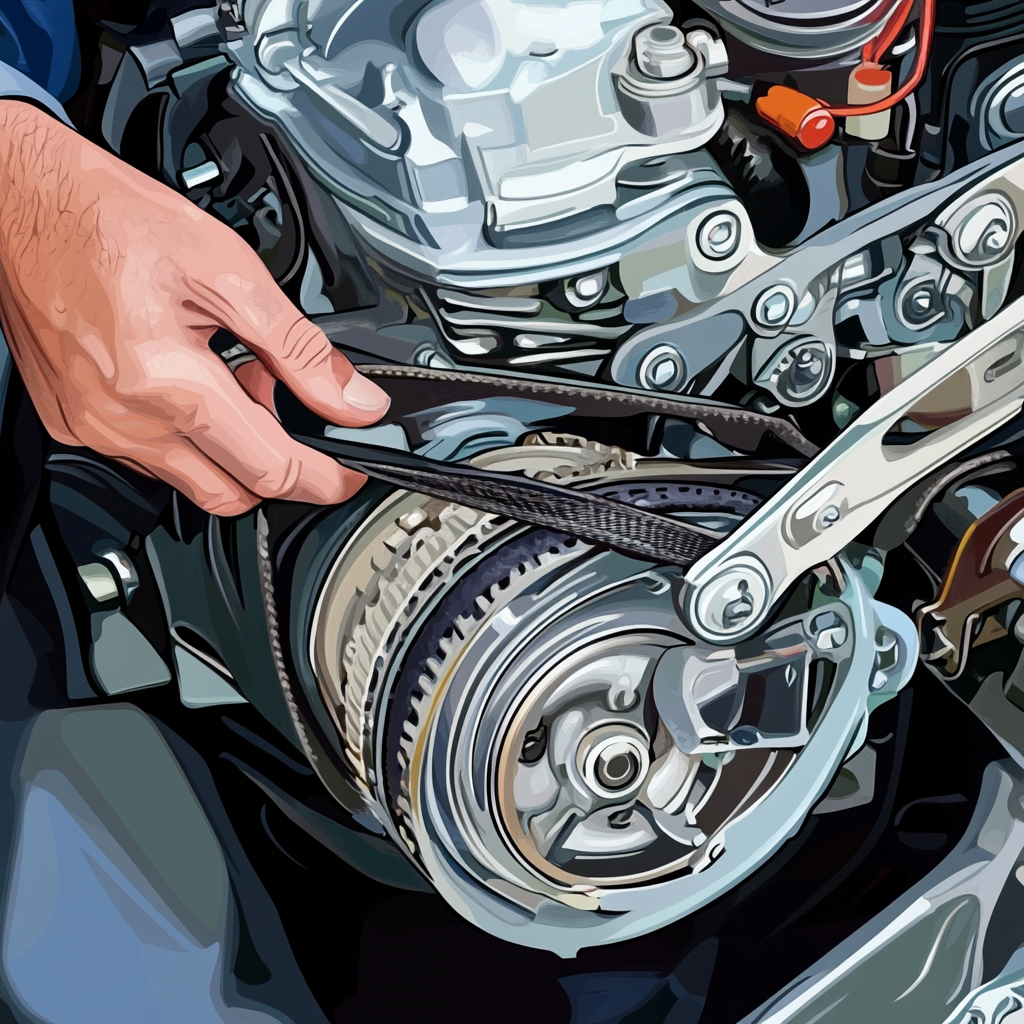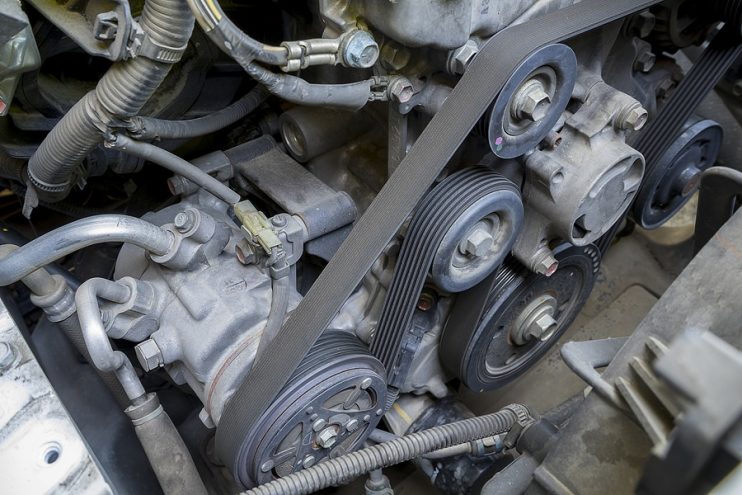
Hearing a squealing or chirping noise when you press the gas pedal can be annoying—and worrisome. In 2025, even with advances in automotive technology, fan belt noise is still a very common problem. Understanding the reasons behind this noise can help you diagnose and fix the issue before it leads to bigger (and more expensive) repairs.
What Is a Fan Belt and What Does It Do? 🏁
The fan belt (also called the serpentine or accessory belt) is a strong rubber belt that powers important engine accessories like the alternator, water pump, power steering pump, and air conditioner compressor. Modern cars often use a single serpentine belt instead of several separate belts, making it even more critical to keep in good shape.
Main Reasons for Fan Belt Noise When Accelerating
1. Worn or Aged Belt 🛠️
Over time, the fan belt's rubber can crack, glaze, or harden, which reduces grip and causes squealing—especially when accelerating. According to 2024 automotive surveys, about 37% of cars older than 6 years experience some form of belt noise.
2. Incorrect Belt Tension ⚖️
If the tension is too loose or too tight, the belt can slip or strain, making noise under load. A common cause is a worn-out belt tensioner or improper installation.
3. Misaligned or Worn Pulleys 🛞
Pulleys guide and support the belt. If they’re worn, stuck, or misaligned, the belt won’t track properly and will make noise, especially as you accelerate.
4. Fluid Contamination 💧
Oil, coolant, or even water can drip onto the belt, making it slip and squeal. In fact, a 2025 industry report found that one in five cases of belt noise were linked to engine fluid leaks.
5. Cold Weather Effects ❄️
Cold weather can make rubber belts stiff and less flexible, causing noise during the first few minutes of driving—especially in winter 2025, with record low temperatures across Europe.
Is Fan Belt Noise Dangerous? 🚨
While fan belt noise might seem minor, it can signal problems that may lead to loss of power steering, dead battery, or even engine overheating if ignored. With today’s cars relying on more electrical systems than ever, a faulty belt can leave you stranded.

How to Fix Fan Belt Noise in 2025
- 🧑 🔧 Regularly inspect the belt for cracks, glazing, or visible damage. Replace if needed.
- ⚙️ Check and adjust the belt tension. If the tensioner or pulleys are worn, have them replaced by a professional.
- 🛞 Inspect pulleys for alignment and smooth operation. Replace any that are noisy or rough when spun.
- 💧 Look for signs of oil, coolant, or water leaks around the belt area—fix leaks before replacing the belt.
- ❄️ If you notice noise mainly in cold weather, let your engine warm up for a few minutes before driving hard.
- 🔄 For modern vehicles, always use manufacturer-recommended belts and parts for best fit and durability.
Statistics: Fan Belt Issues in 2025 📊
According to a recent European automotive survey, over 45% of vehicles requiring roadside assistance in 2024-2025 had issues related to belt failure or noise. Regular checks and timely replacement can drastically reduce the risk of breakdowns.

FAQ: Fan Belt Noise When Accelerating ❓
How long does a fan belt usually last in 2025?
Most modern fan belts last between 60,000 and 100,000 km (37,000–62,000 miles), but regular inspections are still recommended every 20,000 km.
Can I drive with a noisy fan belt?
You can drive for a short time, but it’s best to address the issue as soon as possible. Ignoring the noise can lead to sudden breakdowns or damage to engine accessories.
Is fan belt noise expensive to fix?
Replacing a fan belt is usually affordable. However, if pulleys or tensioners are also worn, the cost may increase. Addressing the problem early helps you save money in the long run.
Can I apply belt dressing to stop the noise?
Belt dressing may reduce noise temporarily, but it doesn’t fix the underlying problem. It’s better to replace worn or contaminated belts for a long-term solution.
What should I do if my belt breaks while driving?
Safely pull over and call for roadside assistance. Driving without a fan belt can quickly overheat your engine and damage critical systems.
Conclusion: If you hear fan belt noise when accelerating, don’t ignore it! Early diagnosis and repair in 2025 will keep your car running smoothly and prevent bigger problems down the road. 🚗✨